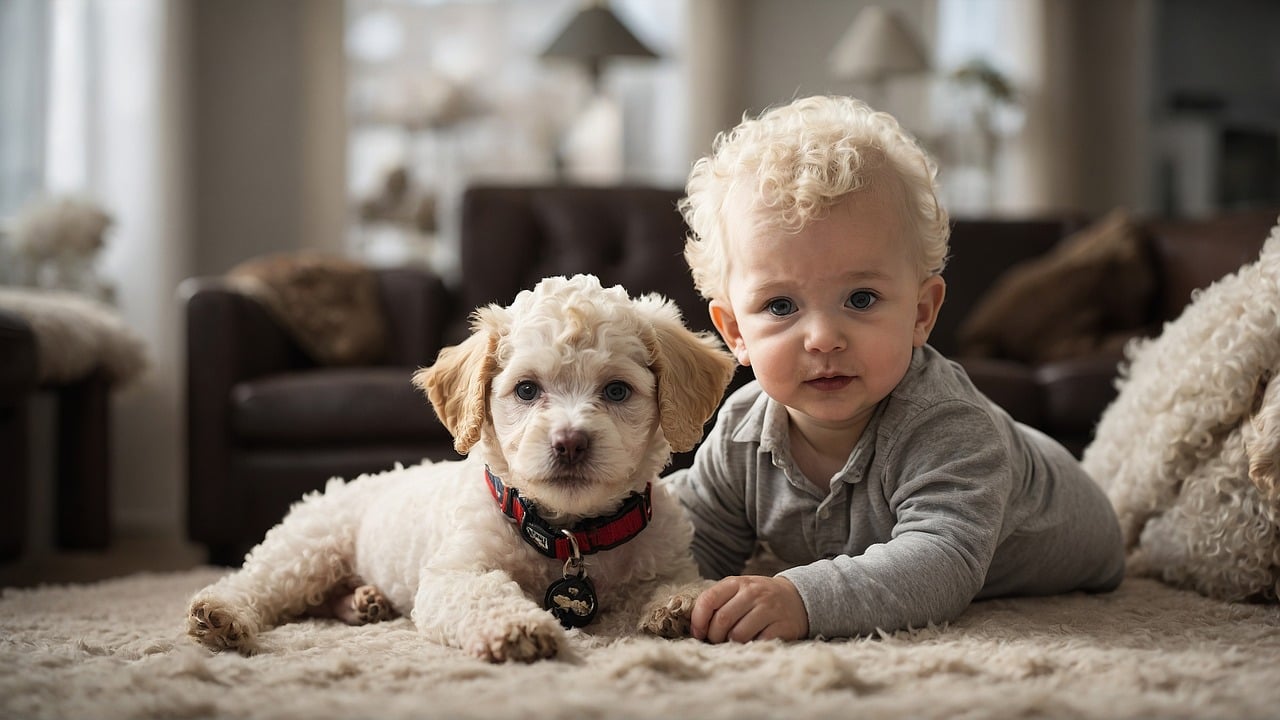If you go online, you can find countless videos of precious interactions between a newborn baby and the family dog. Many families can even boast that their dog grows protective over their child, watching them as they sleep and comforting them when they cry. This is the dream scenario, but it isn’t a reality for all dog owners. If you are worried about how your dog will interact with your child, either due to previous behavioral issues or interactions with unknown people or animals, we want to provide some assistance to help smooth over their first meeting. Remember: the safety of your newborn is paramount, and you should never put them in harm’s way before you are confident there are no risks.
Preparation Before Your Baby’s Due Date
In most cases, new parents have ample time to prepare for the arrival of their child and know more or less when they can expect a new member of the family. Take advantage of that knowledge by preparing your dog beforehand, helping them acclimate to a new routine and set of behaviors:
Start Early: Begin preparing your dog several months before the baby arrives. Reinforce basic commands like “sit,” “stay,” and “leave it.” In conjunction with a close dog-owner bond, these commands are fantastic for maintaining control and ensuring your dog listens when needed. Gradually introduce baby-related items such as a stroller and crib. Allow your dog to sniff and investigate these new objects, rewarding calm behavior to create positive associations.
Adjust Routine: Shift your dog’s daily activities to match the baby’s anticipated schedule, changing feeding and walking times to align with the new routine. Establish quiet times during the day when the baby is likely to nap, training your dog to settle down during these periods with activities like crate time or quiet play. Young infants are not known to follow a strict schedule, but parents can make their own schedule to help streamline care for their child and pet without sacrificing one for the other.
Exposure to Baby Noises and Scents: Recordings of baby sounds, such as crying and cooing, can gradually accustom your dog to the new sounds they will soon hear to help them become more comfortable. You can also introduce baby-related scents like lotion, diapers, and baby clothes. This reduces the novelty of these new scents when the baby arrives, which can reduce surprises and unexpected behavior.
Positive Reinforcement: Encourage and reward calm behavior around baby items using treats and praise to reinforce positive associations with the new environment.
First Encounter with the Family Dog
After a successful prep period, you are ready to introduce your dog to your new child. You and your partner are likely exhausted, and the care of your child should come first – but the quicker you can formally introduce your pet to your kid, the better. Here is what to consider:
Plan the First Encounter: Plan the initial introduction carefully when the baby arrives. Ensure the environment is calm, controlled, and relaxing for your dog. Let your dog sniff and observe the baby from a distance, gradually decreasing the distance under supervision.
Establish Boundaries: Create baby-free zones where your dog can retreat and feel secure. Use baby gates to close off areas of the house and create safe spaces for the baby and the dog. Consistently enforce these boundaries to help your family dog understand where they are allowed to go.
Supervised Interactions: You can never accurately predict how your dog will act around your child. During the first few weeks and months, every interaction should be supervised. Rewarding your family dog for calm and gentle behavior around the baby reinforces positive associations. Never leave your dog and baby alone together, even for a short time, if there is any risk of harm.
Manage Attention and Affection: Your dog will still want to receive attention and affection—if not, it may become jealous. Balance your time between caring for the baby and spending quality time with your dog. Dogs are adaptable and caring, and you may not have to worry about them if they accept the baby as a new member of the family.
Hopefully, your dog falls in love with your child and accepts them as part of the pack.
However, if you are still experiencing issues with the family dog adjusting to a new baby, further training can assist in improving their behavior. Contact Gulf Coast K9 Dog Training today to learn how we can help





